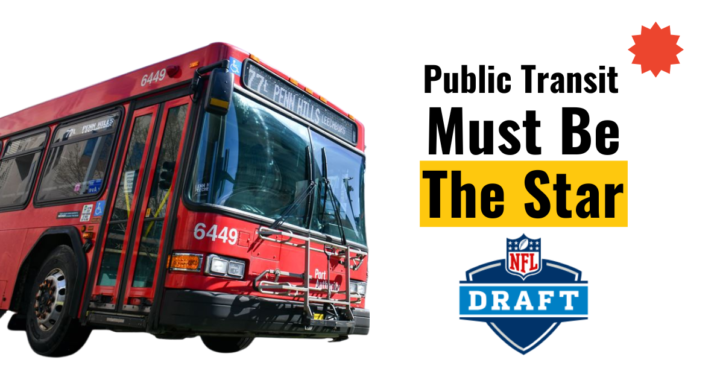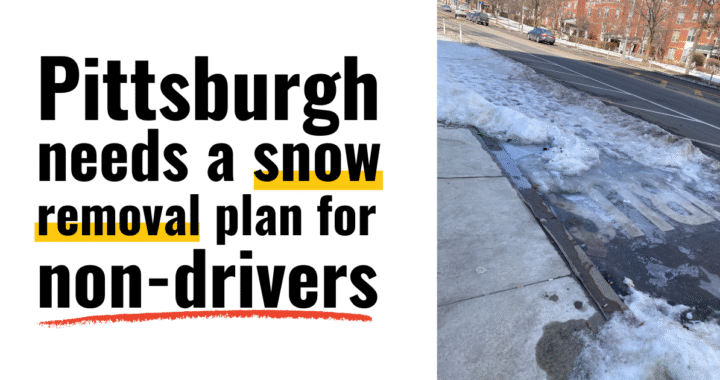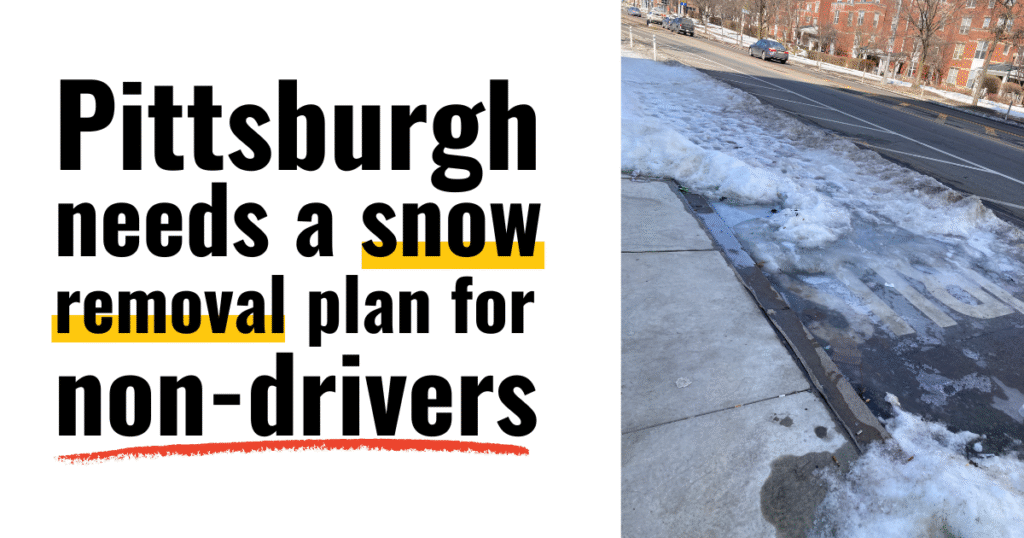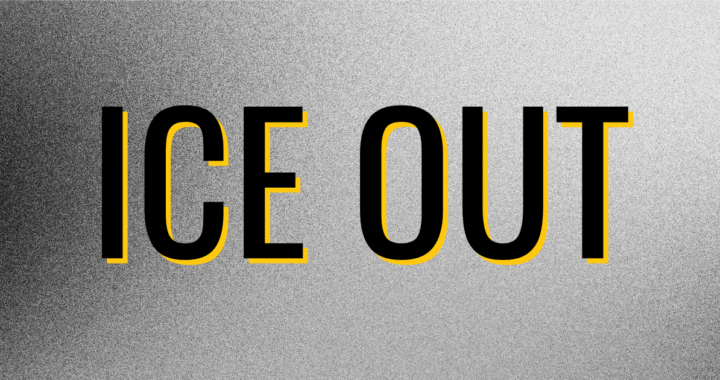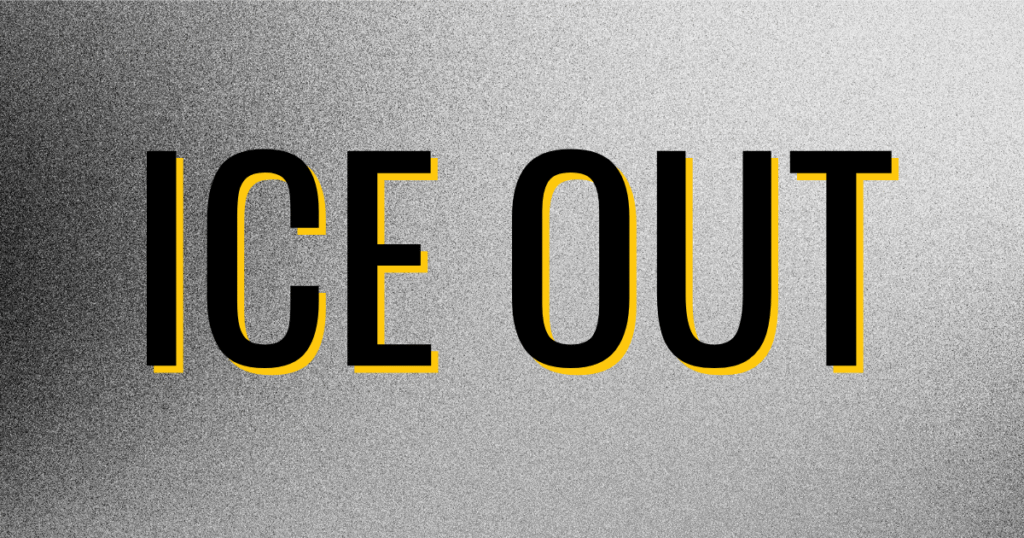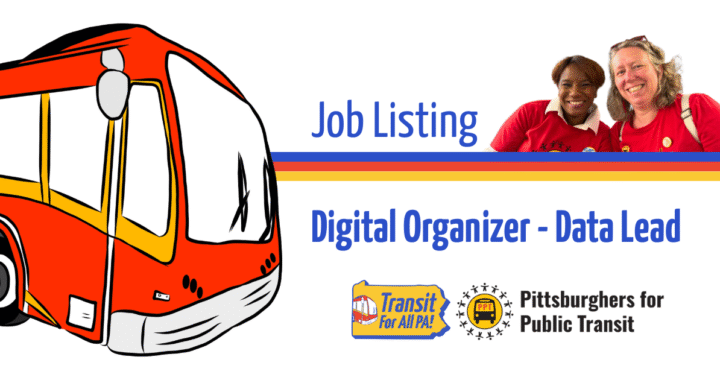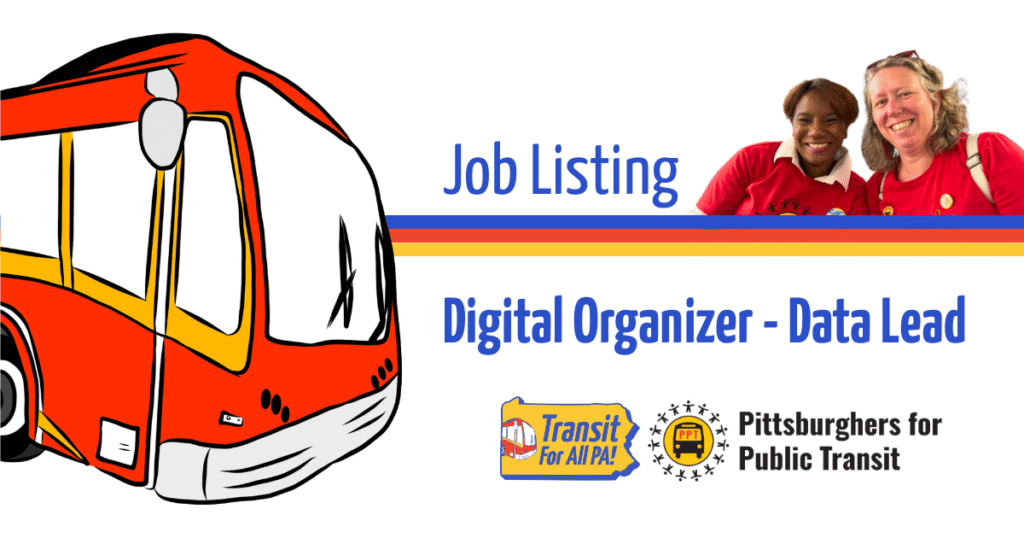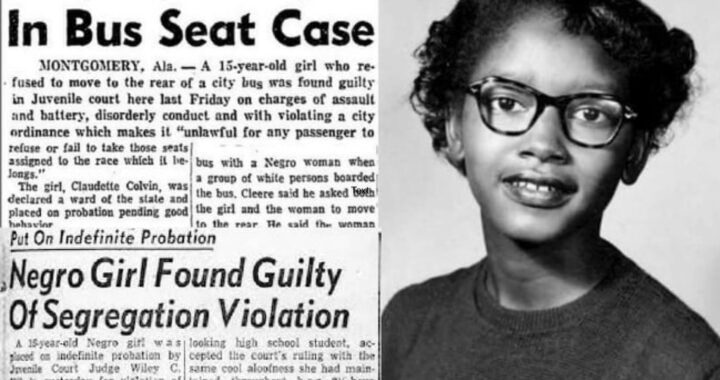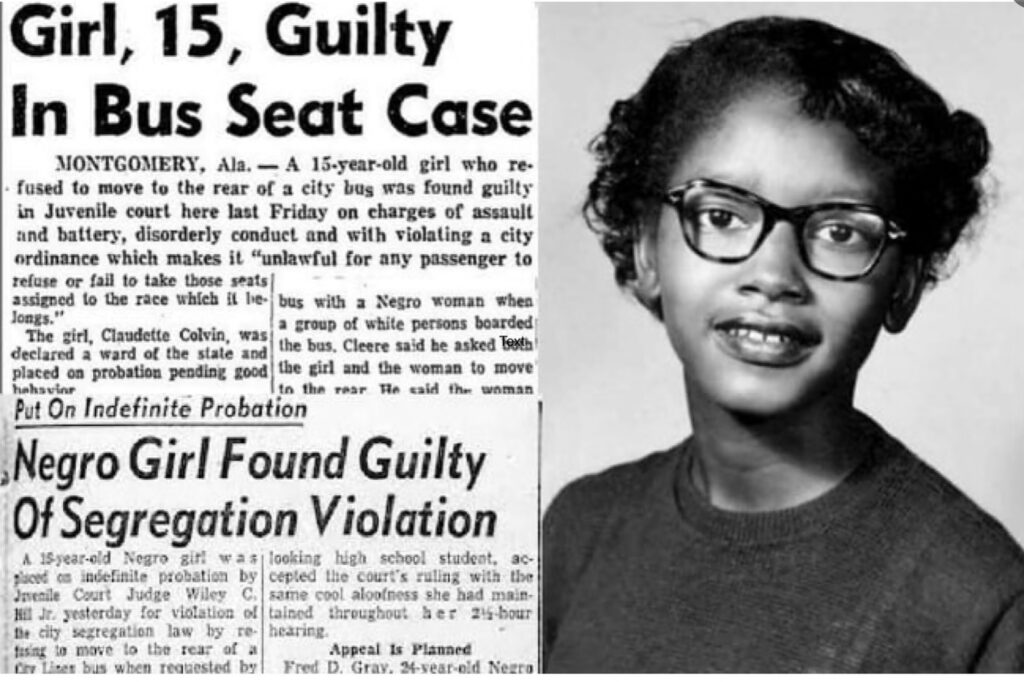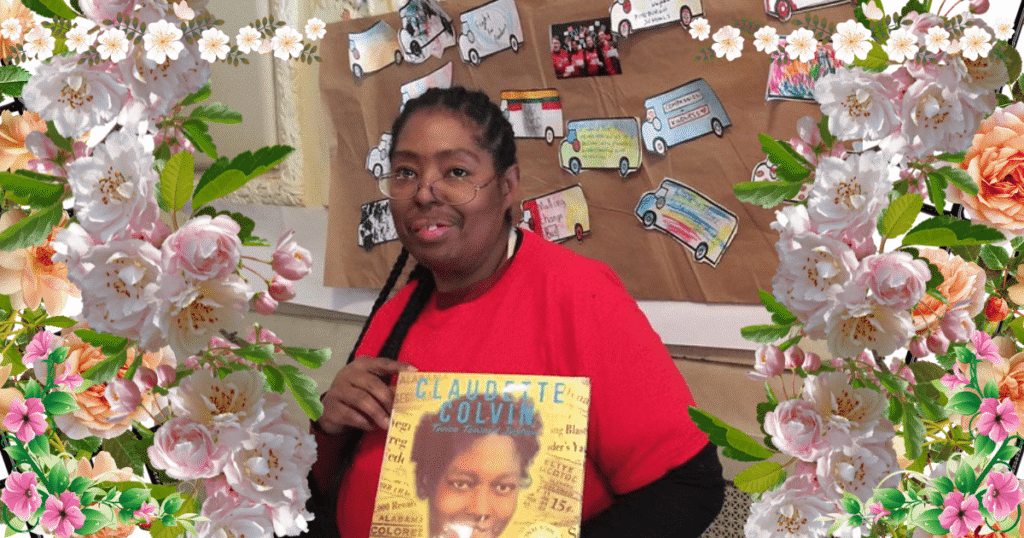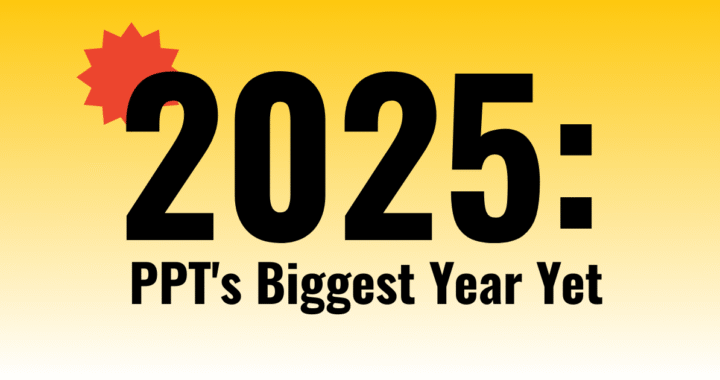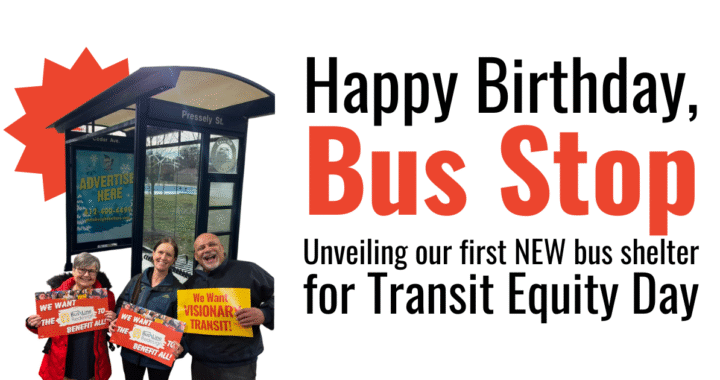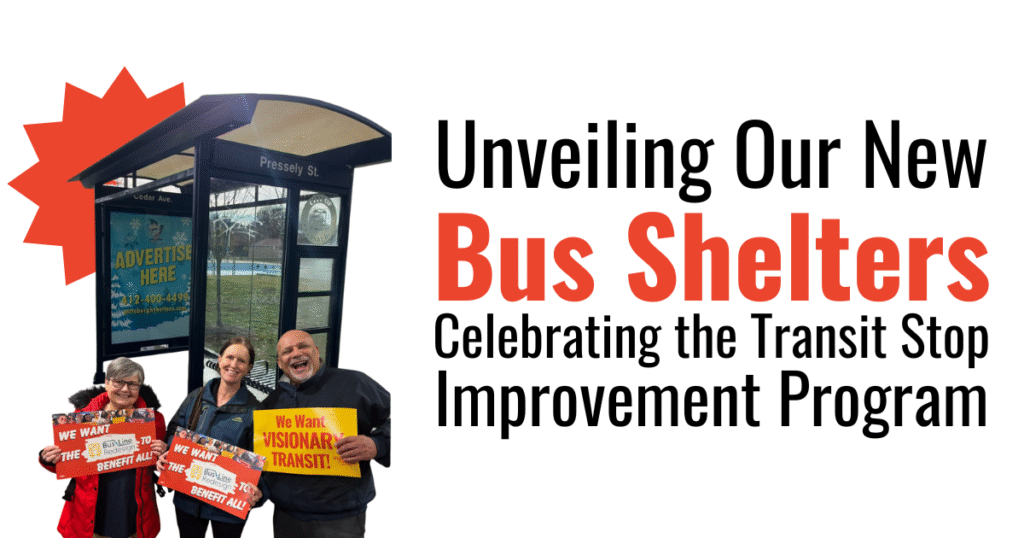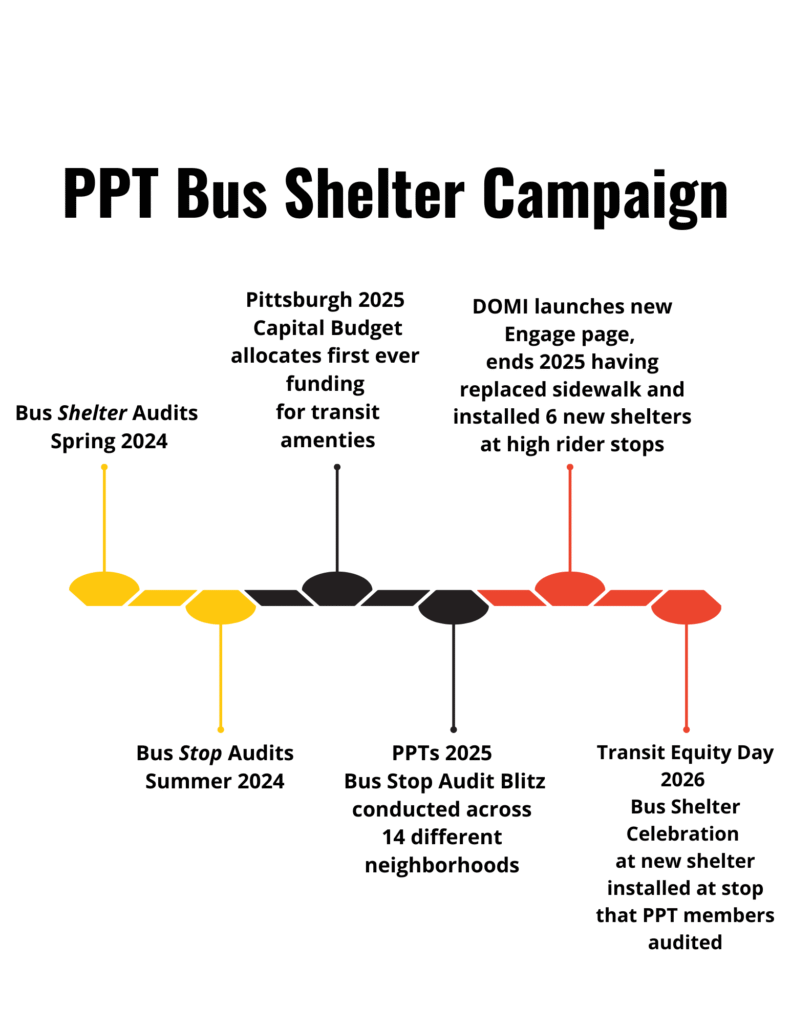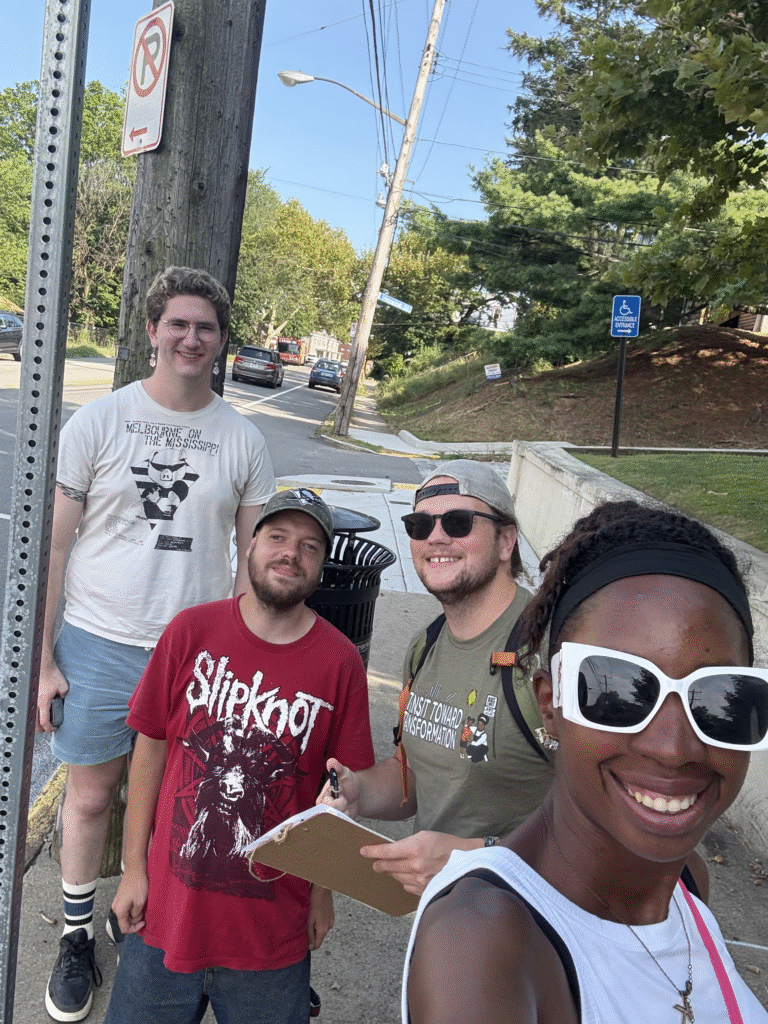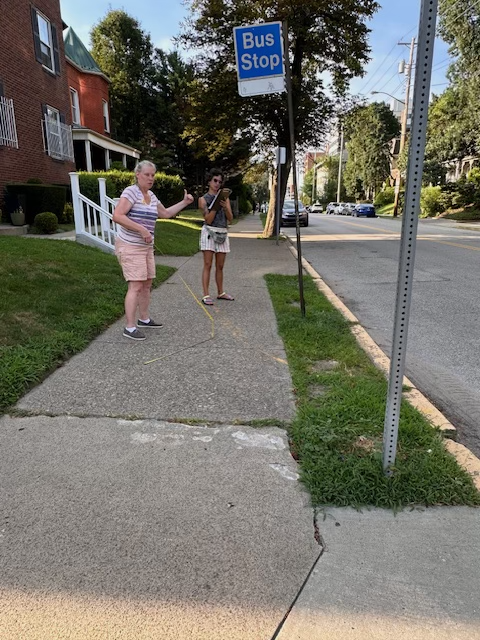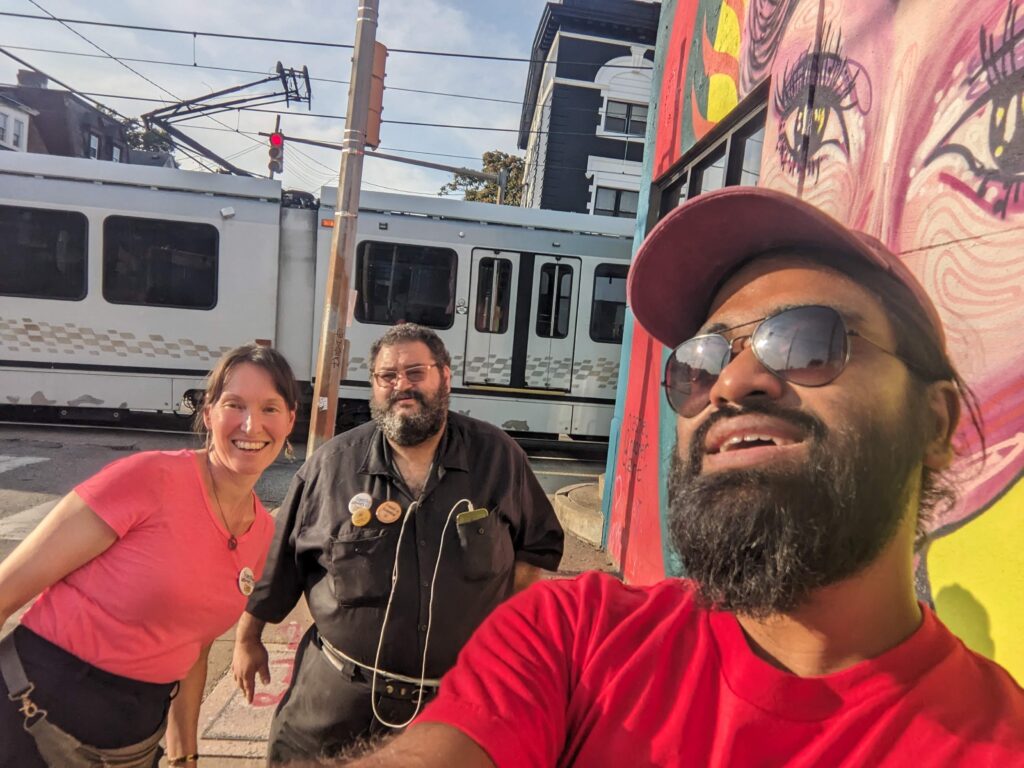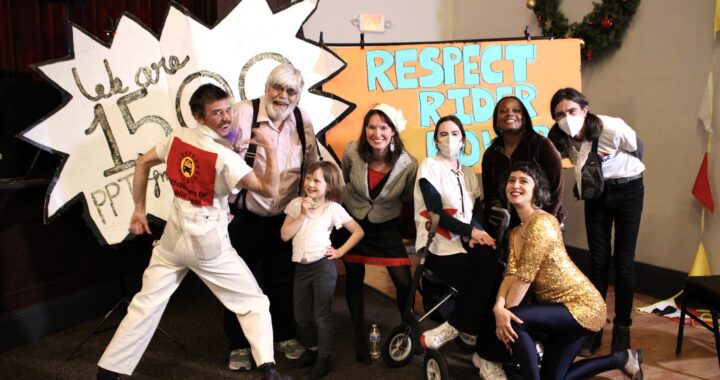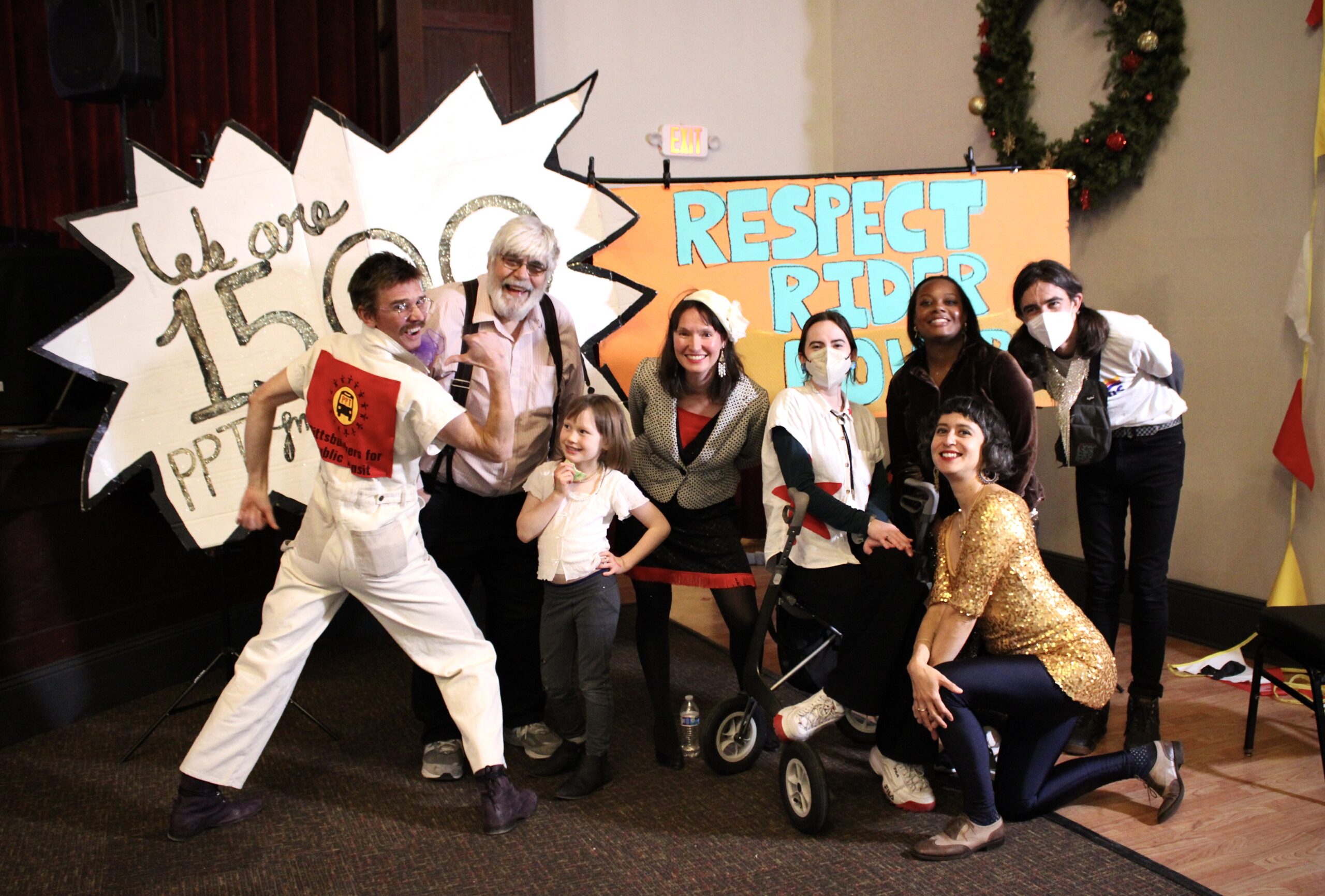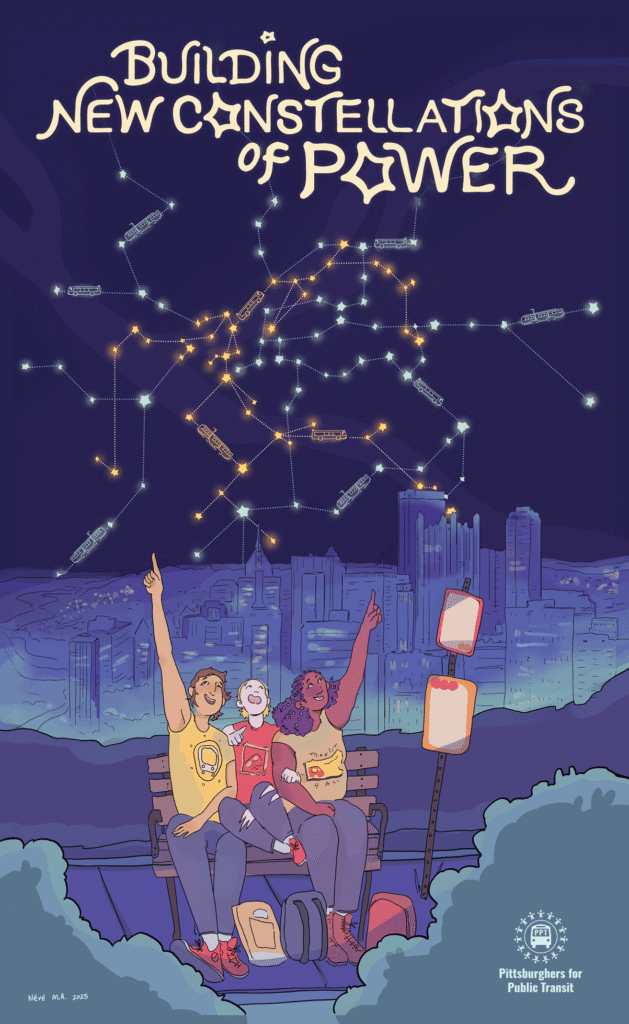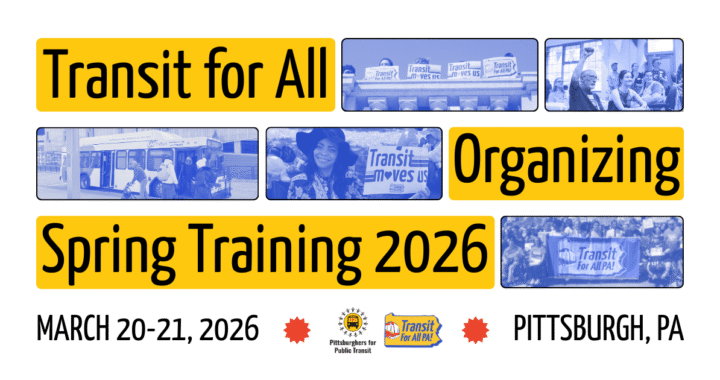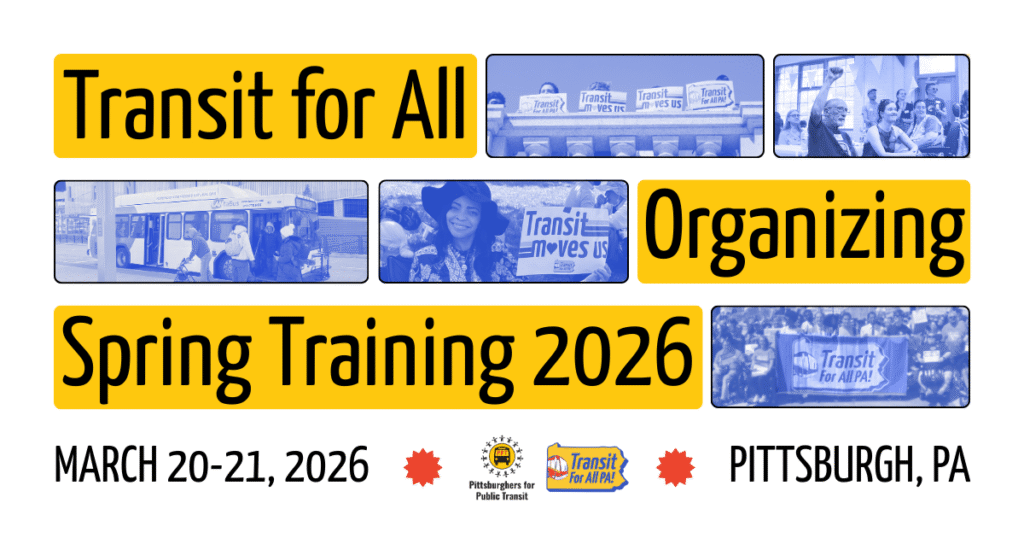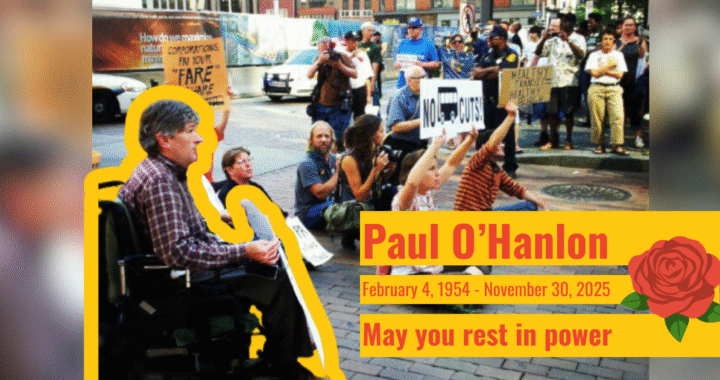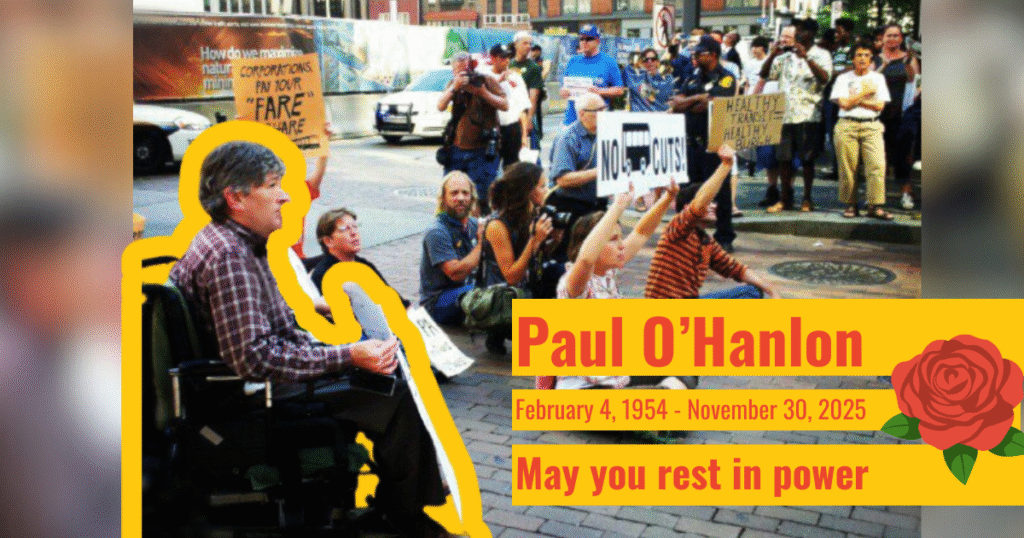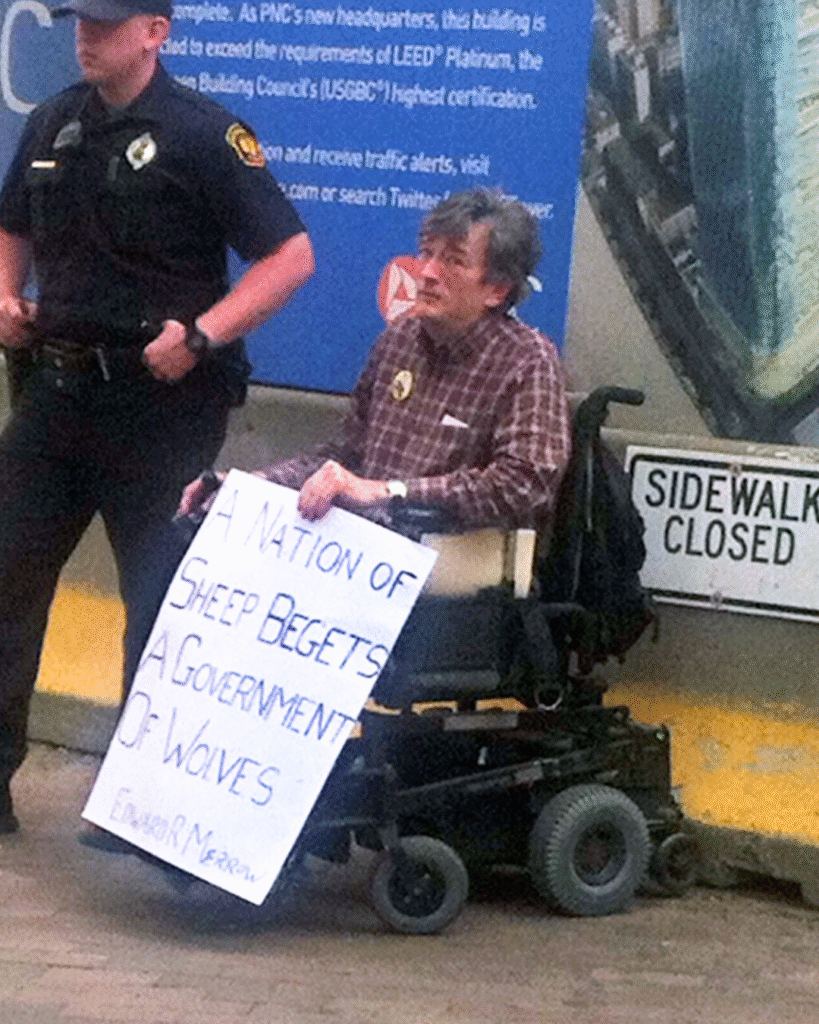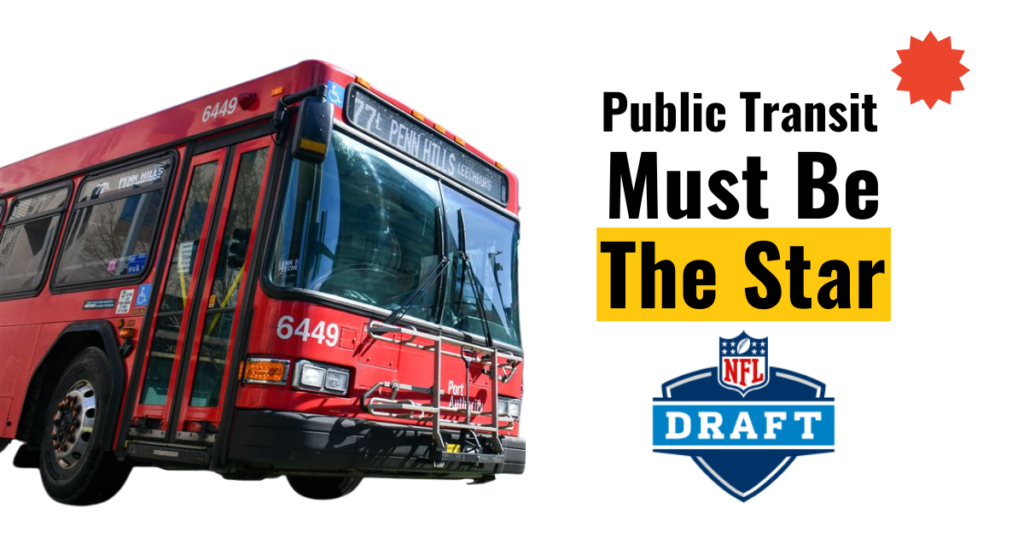
On April 23-25 of this year, Pittsburgh will take the national stage by hosting the NFL draft. This will be an unprecedented opportunity to showcase our region: the event is estimated to draw between 500,000-700,000 attendees across three days, around twice the total population of the City of Pittsburgh. The NFL draft events will be located primarily at the Point and at Acrisure Stadium, and success will depend in part on whether hundreds of thousands of residents and visitors will be able to efficiently access the festivities.
Because our beautiful region is hemmed in with rivers and hills, the arterial roadways and bridges to reach these sites are limited. If the majority of these hundreds of thousands of event attendees plan to drive themselves Downtown or to the North Shore, the NFL Draft will be an unmitigated disaster, with delays lasting for hours in all directions. It is therefore critical that both event workers and the NFL Draft visitors are both supported and incentivized to take public, mass transit.
In other words, well-advertised, easy to use, and abundant transit service must be the heart of any winning strategy for the NFL Draft.
There are a number of key stakeholders who must play a role in order for transit to be the easy and obvious choice for stadium and hospitality workers, local attendees and out-of town visitors through the NFL draft days. Below we offer our recommendations for each:
Recommendations for Pittsburgh Regional Transit:
Recommendations for the NFL/Visit Pittsburgh/Stadium Authority:
Recommendations for City of Pittsburgh, Allegheny County and PennDOT:
Recommendations for Pittsburgh Regional Transit:
Service:
- PRT must provide both robust regular transit service and event shuttle service. Pittsburgh Regional Transit should ensure that all routes, throughout the County, run at least as frequently as their current rush hour service during the entire event. Frequent transit service needs to serve local residents as well as out-of-town visitors. Hundreds of thousands of Pittsburgh area residents are anticipated to attend and work the Draft events and staff local businesses, and visitors to the City will be staying in every available hotel room and Airbnb across the region.
- Transit workers should be provided additional compensation during the NFL draft in order to incentivize workers to pick up extra shifts and to diminish call offs.
Marketing: Pittsburgh Regional Transit must have a marketing campaign to encourage transit use during the NFL draft.
- PRT should deploy a slogan like, “PRT is your ticket to the action”, “PRT is your valet to the game,” “PRT makes it easy,” or ”Transit riders get the red carpet,” which would be memorable and would show that PRT has plans to support rider access to the event.
- PRT should communicate clearly on its channels – social media, Ready2Ride, its website- and third party apps to help riders navigate the system during the event. There should be an NFL draft landing page on the PRT website that includes fares/fare payment, and service/schedules/maps.
- PRT should advertise at the airport, through Airbnb, at Downtown and North Shore restaurants/bars/coffee shops (WMATA in DC has advertisements on coasters in Washington DC bars), in local hotel “welcome guides to Pittsburgh”, and on bus shelters.
- PRT’s canvass team could table at the Pittsburgh airport, on the North Shore, at Acrisure Stadium and at the Point to provide personalized information on fares and service.
Recommendations for the NFL/Visit Pittsburgh/Stadium Authority:
–The NFL Draft One Pass Mobile App should prominently feature a link to a (future) Pittsburgh Regional Transit NFL Draft landing page as the top recommendation for how to get around. Parking information should be secondary.
–Other portals for NFL Draft information including the Steelers App and the Visit Pittsburgh page should prominently link to and recommend Pittsburgh Regional Transit for locals and out-of-town visitors to get around during the Draft.
–Buses should get priority access to the front of the stadium. Reducing overall traffic congestion, excessively long commute times and walks to access the event – by rolling out the red carpet for public transit- will make for a successful event and happier attendees.
Recommendations for City of Pittsburgh, Allegheny County and PennDOT:
–Buses must not be stuck in mixed traffic during the event. There should be a careful audit of where buses experience delays during stadium events and events at the Point, and specific interventions made to address them. For instance, one lane of Reedsdale Street should be made bus-only, and one lane on North Ave should be made bus-only. The bus only lanes downtown -particularly Liberty Ave- should have no exceptions for cars during the event, and should have traffic enforcement officers to ensure that they are kept clear for buses. The HOV lanes on 279 should remain open for buses throughout the three days of the NFL draft.
Conclusion:
The City of Pittsburgh and Pittsburgh Regional Transit have the opportunity to shine at this year’s NFL Draft, and we’re eager to see it happen.
We’re calling on Pittsburgh Regional Transit, the NFL and Pittsburgh tourism bureau, and our municipal champions to ensure that our transit service, PRT’s communications and marketing efforts, and our region’s infrastructure is primed to make transit the easiest and best option for locals and visitors alike. Of course, these are not comprehensive recommendations—we trust that many other good proposals are being brought to the table. But we hope that together, these institutions can play their part towards making abundant, efficient transit the ticket to a winning NFL Draft.
